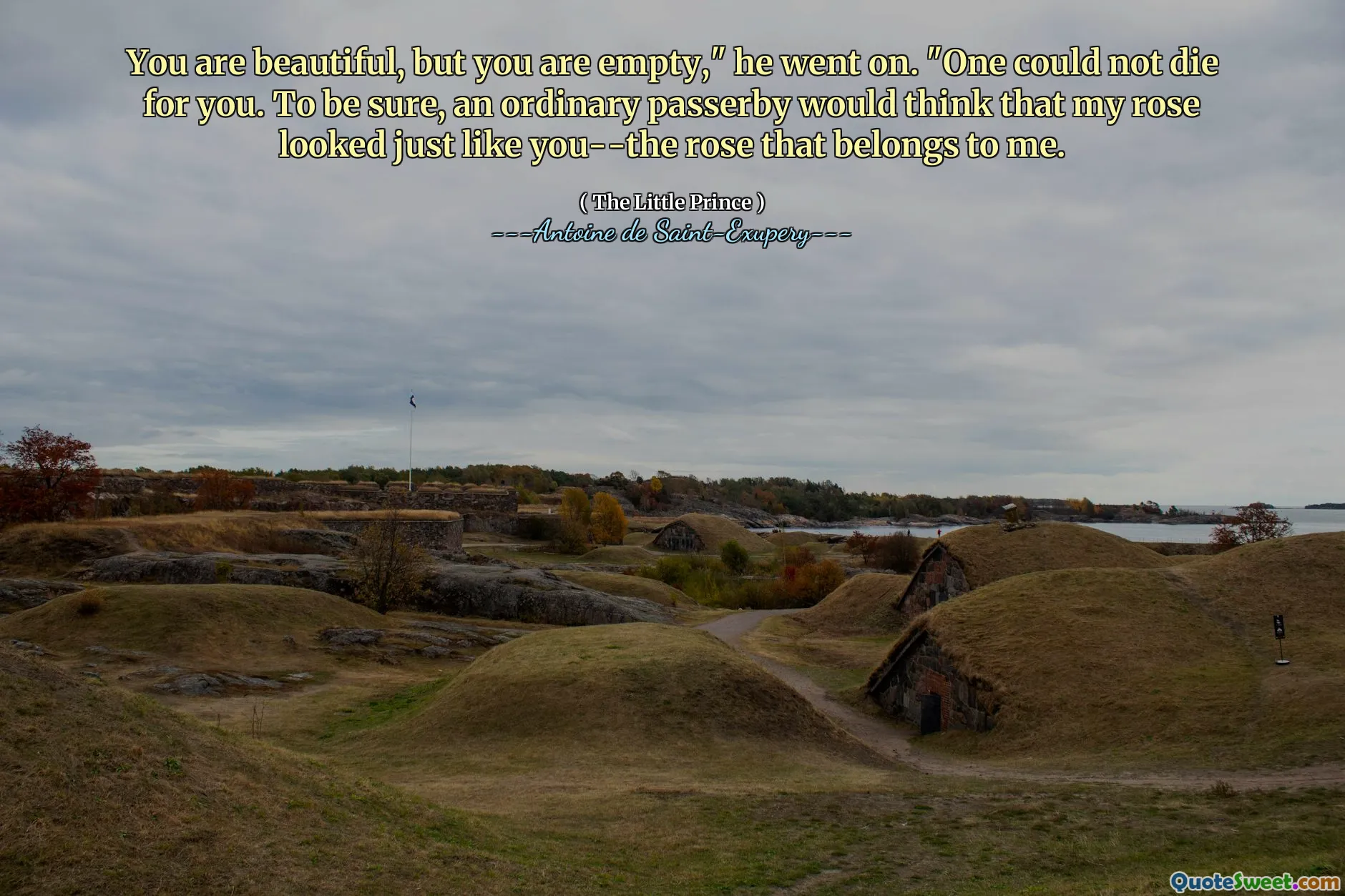
You are beautiful, but you are empty," he went on. "One could not die for you. To be sure, an ordinary passerby would think that my rose looked just like you--the rose that belongs to me.
In "The Little Prince," the narrator reflects on a profound observation regarding beauty and depth. He encounters a rose that captivates him with its beauty but ultimately perceives it as empty and lacking in substance. This sentiment highlights the idea that external appearances can be deceiving, as what is beautiful may not necessarily hold emotional or spiritual value.
The comparison between the rose and a person suggests that true worth comes from deeper connections rather than mere aesthetics. The narrator acknowledges that while others may see similarities between his rose and another, it is the unique bond he shares with his rose that makes it special. This illustrates the importance of emotional ties over superficial allure.











